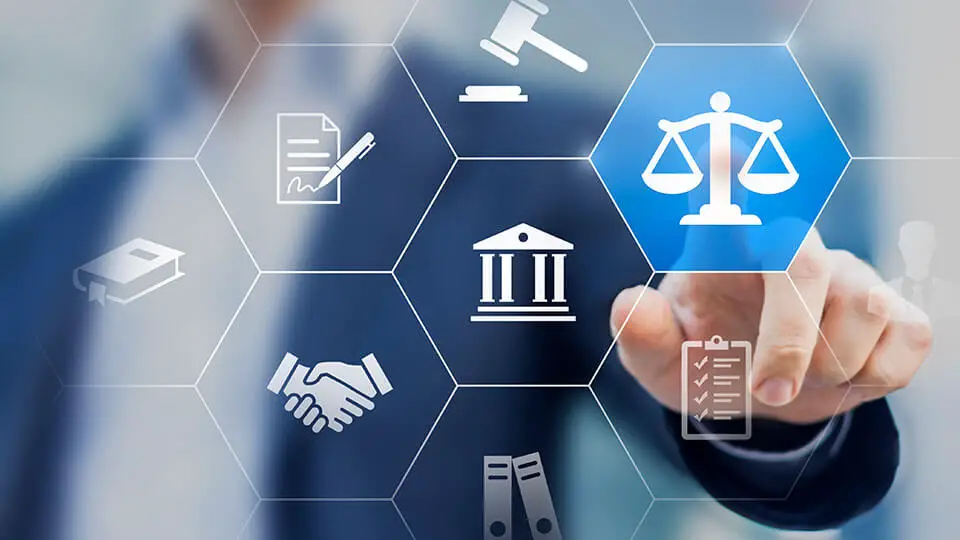In today’s rapidly evolving business landscape, corporate compliance plays a crucial role in ensuring adherence to regulations and ethical standards. With the continuous advancements in technology, businesses are leveraging various digital tools and solutions to enhance their compliance processes. This article delves into the pivotal role of technology in corporate compliance, exploring how technological innovations are reshaping compliance management practices.
Introduction to Corporate Compliance
Corporate compliance refers to the adherence to laws, regulations, and internal policies within an organization. It encompasses a range of activities aimed at preventing and detecting violations, promoting ethical conduct, and safeguarding the interests of stakeholders. Over the years, corporate compliance has evolved from a reactive approach to a proactive and strategic function within businesses.
The Intersection of Technology and Corporate Compliance
Technological advancements have revolutionized the way businesses manage compliance requirements. From automation to data analytics, technology has become an integral part of compliance processes, enabling organizations to streamline operations, mitigate risks, and drive efficiency.
Automation in Compliance Management
Automation plays a significant role in simplifying and standardizing compliance tasks. Through the use of software solutions, businesses can automate repetitive processes such as document management, regulatory updates, and compliance reporting. This not only reduces manual effort but also ensures accuracy and consistency in compliance activities.
Data Analytics for Compliance Monitoring
Data analytics tools empower organizations to analyze vast amounts of data to identify patterns, trends, and anomalies related to compliance risks. By leveraging predictive analytics and machine learning algorithms, businesses can proactively monitor compliance metrics, detect potential issues, and take timely corrective actions.
Artificial Intelligence and Machine Learning in Compliance
Artificial intelligence (AI) and machine learning (ML) technologies are revolutionizing compliance functions by enabling advanced data analysis, predictive modeling, and decision-making capabilities. AI-powered solutions can automate risk assessments, detect fraudulent activities, and enhance compliance monitoring processes with real-time insights.
Cybersecurity Measures for Compliance
In an era of increasing cyber threats, cybersecurity is paramount for maintaining compliance integrity. Technologies such as encryption, multi-factor authentication, and intrusion detection systems are deployed to safeguard sensitive compliance data from unauthorized access, breaches, and data theft.
Cloud Computing Solutions in Compliance
Cloud computing offers scalable and cost-effective solutions for compliance management. By hosting compliance data and applications on secure cloud platforms, businesses can improve accessibility, collaboration, and disaster recovery capabilities while addressing regulatory requirements and data privacy concerns.
Blockchain Technology for Transparency and Trust
Blockchain technology is emerging as a game-changer for ensuring transparency and trust in compliance processes. By creating immutable and tamper-proof records of transactions, blockchain enhances auditability, traceability, and accountability, thereby reducing the risk of fraud and manipulation.
Mobile and Remote Compliance Solutions
Mobile and remote compliance solutions empower organizations to manage compliance tasks anytime, anywhere. Mobile apps, virtual compliance platforms, and remote monitoring tools enable employees to stay connected and compliant even in decentralized work environments, enhancing productivity and flexibility.
Training and Education Technologies for Compliance
E-learning platforms and interactive tools are revolutionizing compliance training and education. By delivering engaging and personalized learning experiences, businesses can ensure that employees are well-informed about regulatory requirements, ethical standards, and compliance best practices, reducing compliance-related incidents and liabilities.
Regulatory Technology (RegTech) Innovations
RegTech solutions leverage cutting-edge technologies to simplify and automate regulatory compliance processes. From regulatory intelligence to risk management and reporting, RegTech platforms offer comprehensive solutions for navigating complex regulatory landscapes efficiently and cost-effectively.
Compliance Monitoring and Reporting Software
Compliance monitoring and reporting software enable organizations to track, analyze, and report on compliance activities effectively. With customizable dashboards, real-time alerts, and audit trails, these software solutions provide stakeholders with visibility into compliance performance and facilitate timely decision-making and reporting.
Challenges and Risks in Adopting Technological Solutions
While technology offers numerous benefits for compliance management, organizations must navigate challenges and risks associated with implementation and adoption. Common challenges include data privacy concerns, integration issues, skills gaps, and resistance to change. However, by addressing these challenges proactively and adopting a risk-based approach, businesses can maximize the value of technology in compliance initiatives.
Future Trends in Technology and Corporate Compliance
Looking ahead, the future of corporate compliance will be shaped by emerging technologies such as artificial intelligence, blockchain, and quantum computing. These technologies will enable businesses to enhance regulatory compliance, mitigate risks, and drive innovation in compliance management practices.
Conclusion
In conclusion, technology plays a transformative role in corporate compliance, empowering businesses to navigate regulatory complexities, mitigate risks, and foster a culture of integrity and accountability. By embracing technological innovations and adopting a forward-thinking approach to compliance management, organizations can stay ahead of regulatory changes, protect their reputation, and drive sustainable growth in the digital age.
Unique FAQs
- How can small businesses leverage technology for compliance? Small businesses can leverage technology by investing in cloud-based compliance solutions, utilizing automation tools for routine tasks, and exploring affordable RegTech platforms tailored to their specific needs.
- What role does employee training play in compliance efforts? Employee training is essential for building awareness, understanding, and adherence to compliance policies and procedures. By investing in comprehensive training programs, businesses can empower employees to identify and mitigate compliance risks effectively.
- How can blockchain technology enhance supply chain compliance? Blockchain technology offers transparency, traceability, and immutability, making it ideal for ensuring compliance across complex supply chains. By recording transactions on a distributed ledger, businesses can verify the authenticity and integrity of products, reduce counterfeiting, and ensure ethical sourcing practices.
- What are the regulatory implications of adopting AI in compliance functions? Adopting AI in compliance functions raises regulatory concerns related to data privacy, bias, and accountability. Organizations must ensure compliance with relevant regulations such as GDPR and establish robust governance frameworks to address ethical and legal implications associated with AI-driven decision-making.







Leave a Reply